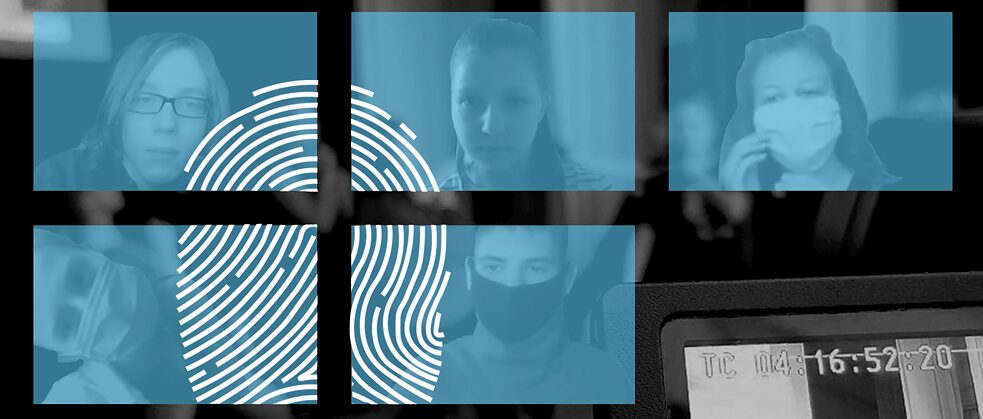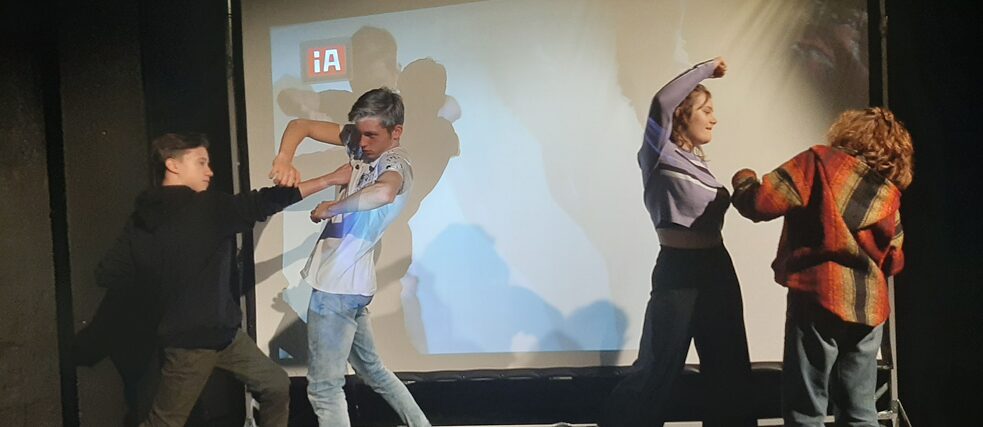“Lorenz.io (Romeo Meetz Yulija)”
Romeo meets Juliet, Dortmund meets Mariupol

The digital youth theatre project “Lorenz.io (Romeo Meetz Yulija)” with 20 actors from Ukraine and Germany celebrated its premiere online. Originating from the Goethe-Institut Ukraine’s project “Digital Perspectives in Youth Theatre”, it demonstrated that impressive theatre productions can also be put on during the coronavirus pandemic.
By Annette Walter
Putting on a play when the coronavirus has closed venues not only in Germany but also in many other countries is a special challenge, but it can also inspire creative achievements. A group of ten young people from Ukraine and ten young people from Germany showed how it’s done. They put together the digital youth theatre project “Lorenz.io (Romeo Meetz Yulija)” with great dedication. It was produced as part of the German-Ukrainian theatre project “Digital Perspectives in Youth Theatre”, which was initiated by the Goethe-Institut Ukraine and implemented in cooperation with the NGO Gogolfest, the Akademie für Theater und Digitalität (Dortmund) and Schauspiel Dortmund.
It was still possible to hold real rehearsals in Dortmund in October 2019, but the return visit had to be cancelled due to the coronavirus. The participants didn’t get discouraged though: The premiere was now broadcast live all over the world in a successful mix of pre-produced clips and live videos, accompanied by sophisticated sounds. So not everything was pre-recorded, but some was performed in real time by the young amateur actors. The content: The most popular love story of literature by William Shakespeare – with Romeo from Dortmund and Juliet from Mariupol.
 Theatrical rehearsal for “Lorenz.io (Romeo Meetz Yulija)”
| Photo (Detail): Theatromania
Theatrical rehearsal for “Lorenz.io (Romeo Meetz Yulija)”
| Photo (Detail): Theatromania
But the drama, in which the two main characters can be seen as animated avatars like in an online game, was only part of the concept. How the young people are presently experiencing their everyday lives in the two countries under the curfews was also an important theme. “The quarantine is pushing us into complete isolation from the world,” complained one participant from Mariupol. But he still sees a glimmer of hope. “It’s forcing us to let go of the haste of everyday life.” One of the young women is feeding her two cats at home on the webcam. A thousand thoughts race through her head, she says. But theatre helps her answer these questions. Another actor is also optimistic: “For me there’s no standstill.”
Viewers see the performers very privately, many of them live with parents or grandparents, with the unglamorous backdrop of their own living room, bedroom or balcony. A zoom conference at the end of the play shows a polished choreography of all 20 young people in a long shot, in which they all seem to be caring for a house plant in their respective home in sync, lay on their bed or dance alone with a piece of clothing as if with an imaginary partner – an apt symbol of the yearning caused by solitary everyday life and separation from many friends. In this way, everyone involved grows into a large and virtually united theatre family.The intention of the production is to create understanding for one another and to change perspectives. Both were achieved with this digital experiment, because, in a poetic and subtle way, we get a personal insight into what moves and influences young people right now. Even though the premiere produced a good result, all the participants are looking forward to the day when they can stand on a proper stage again. The production was originally supposed to be presented at the Gogolfest 2020. Maybe the actors’ wishes will come true in 2021.